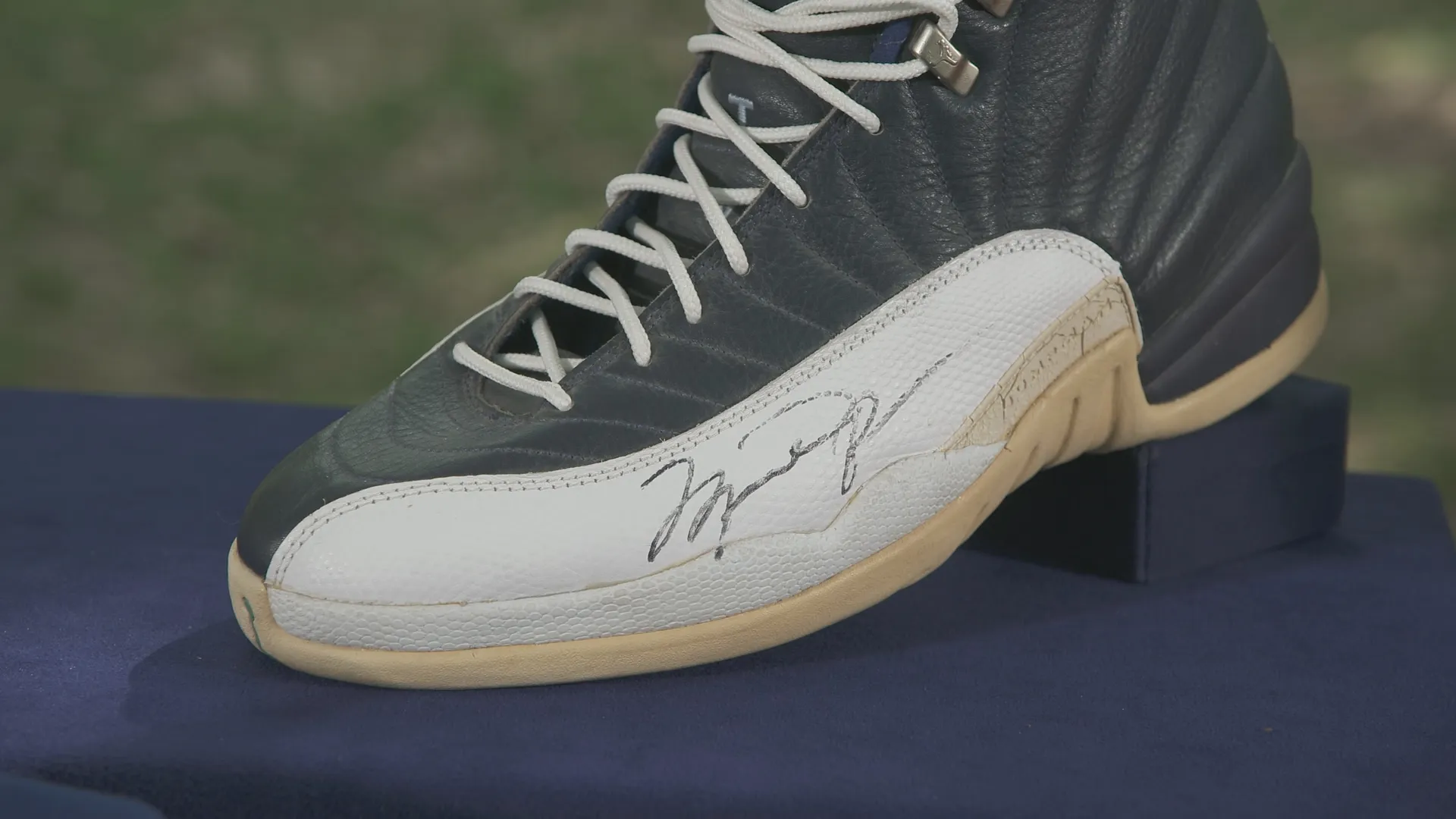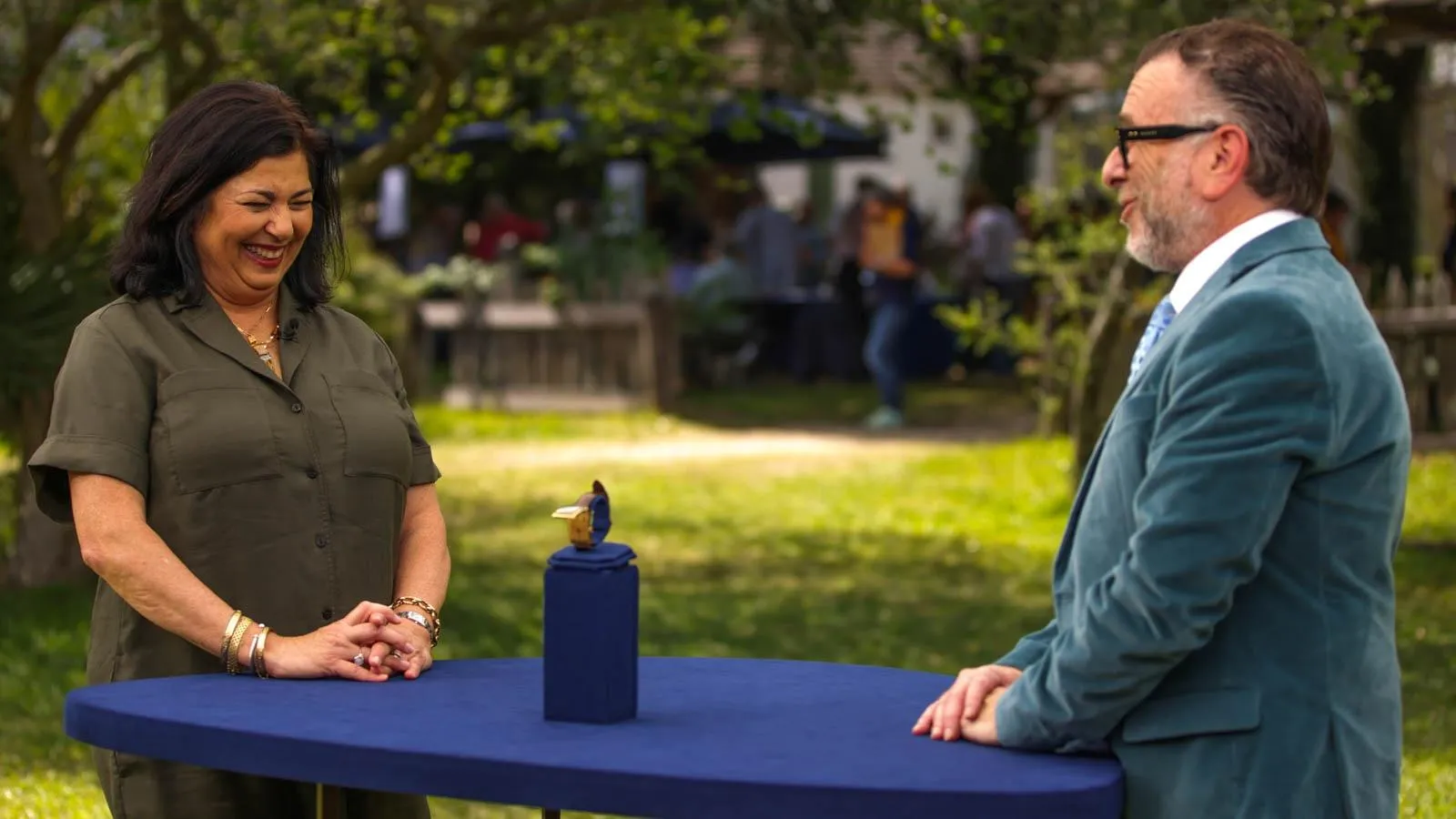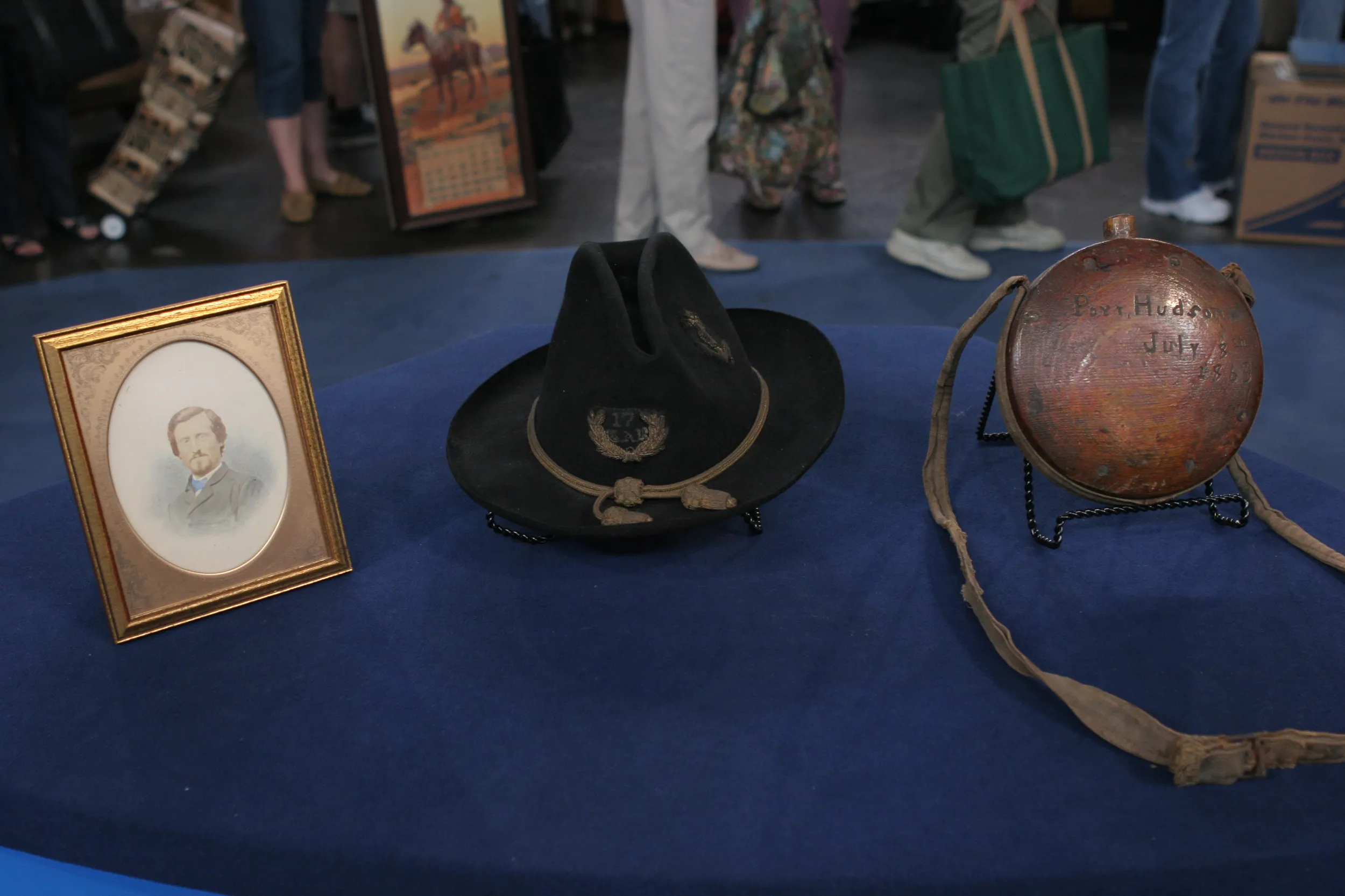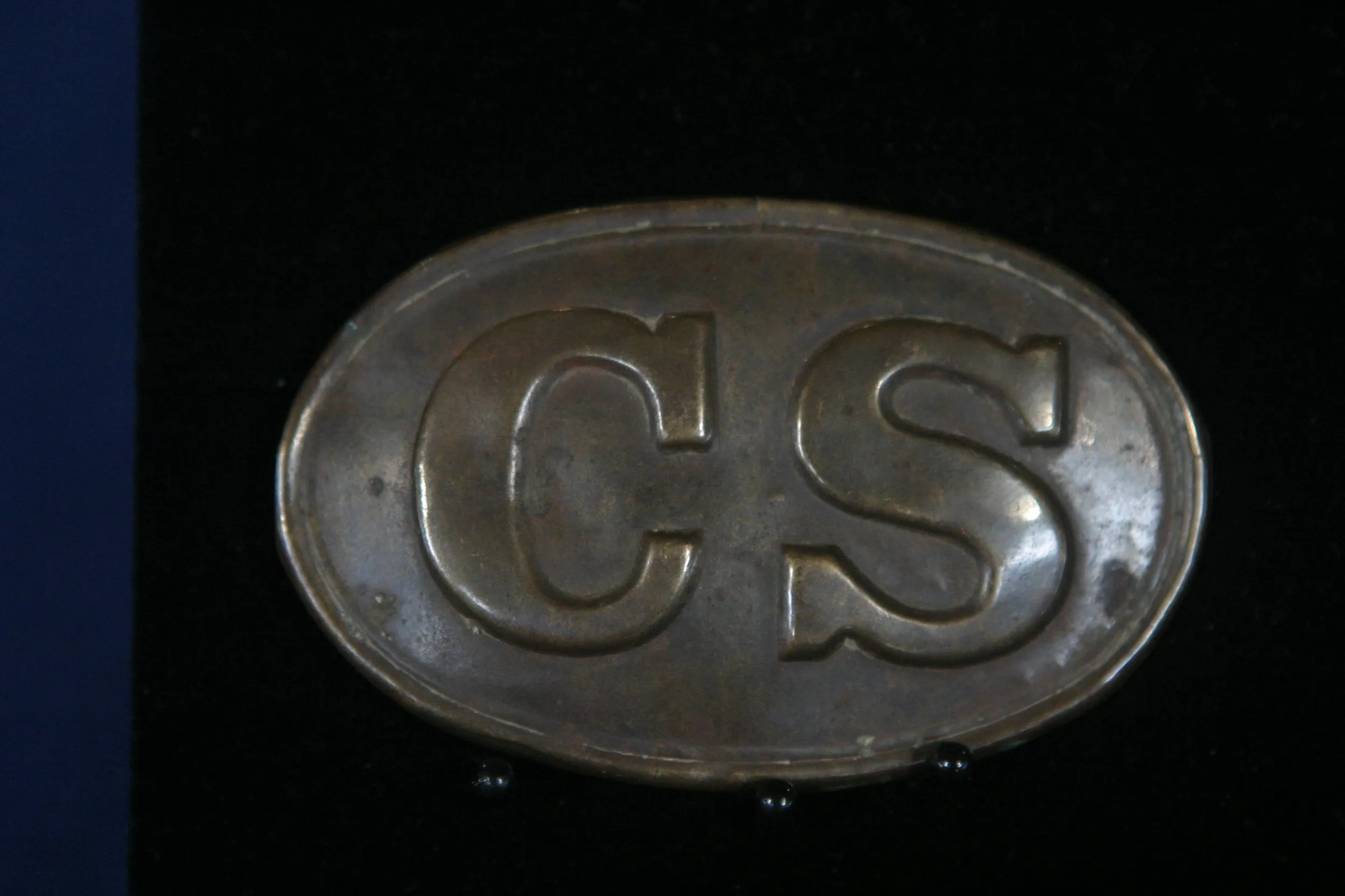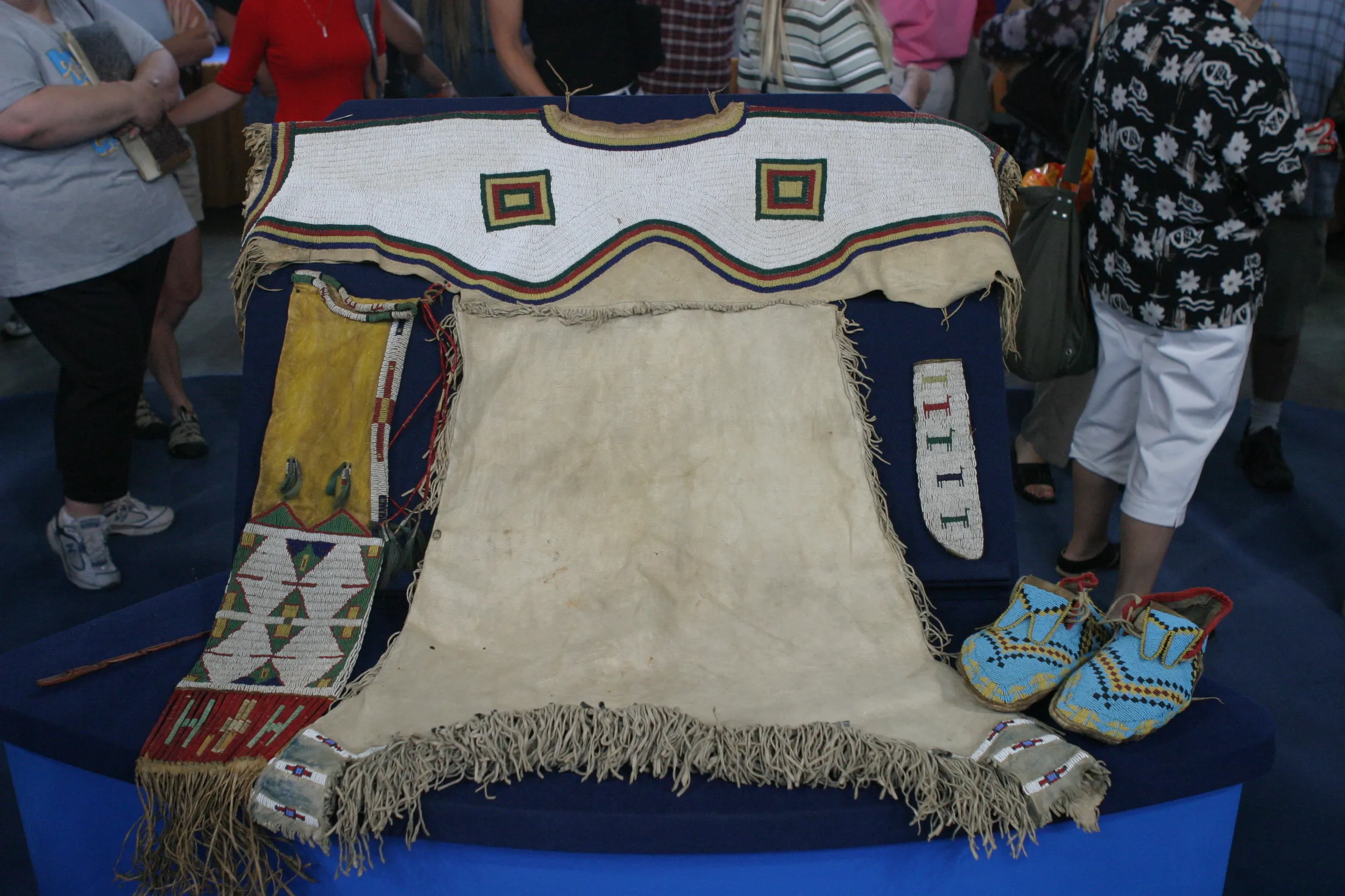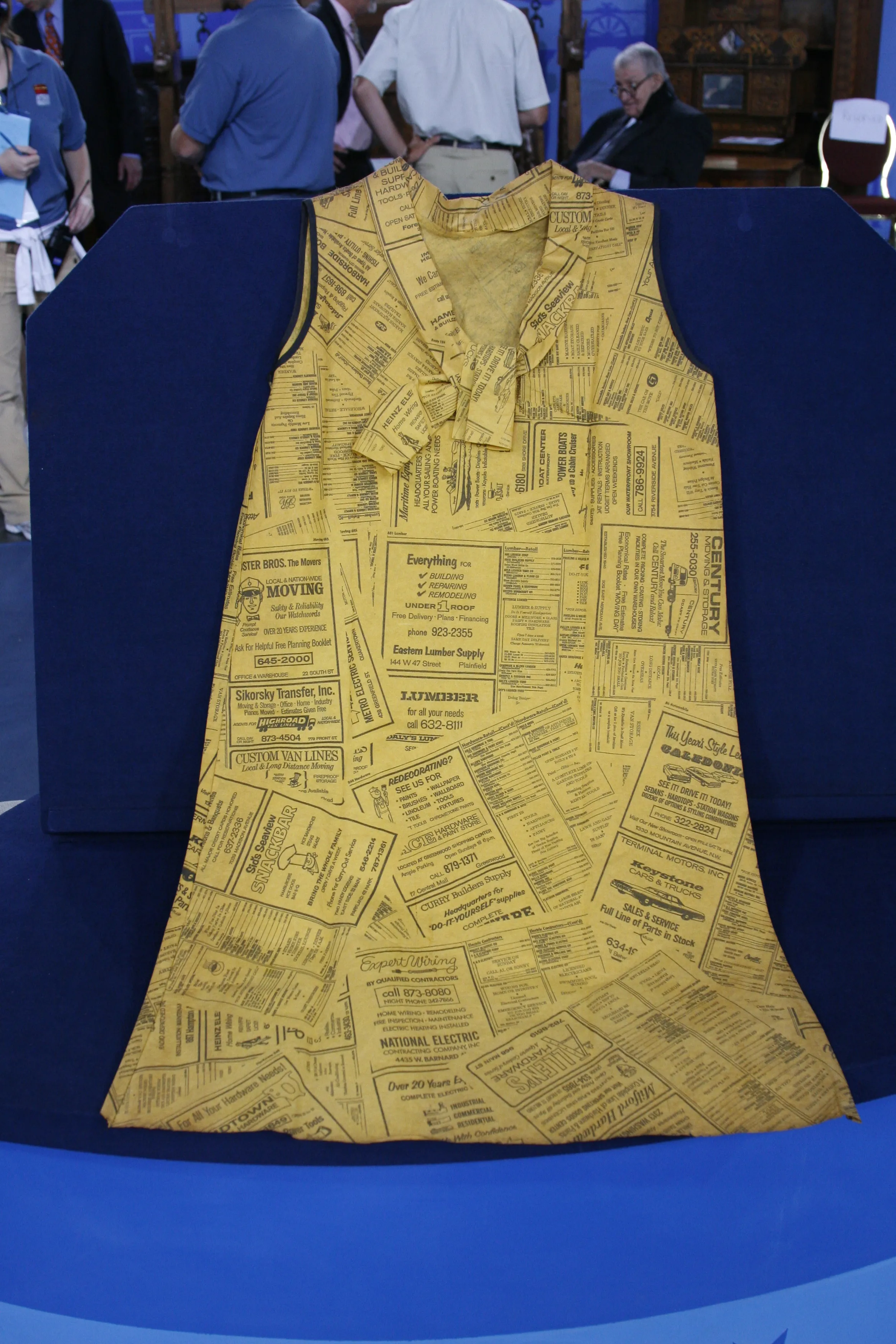APPRAISER: You brought this great pair of Michael Jordan not single-signed, but double-sign kicks. You got to tell us, how'd you get them?
GUEST: It's the 1997 All-Star Weekend.
APPRAISER: Mm-hmm.
GUEST: Michael Jordan gives the shoes to Mr. Eric Martin. Eric Martin played for the Saints for nine seasons. He was a Pro Bowler, he's in the Saints Hall of Fame. Eric Martin then gave the shoes to Dr. Tommy Karam. Dr. Tommy is the head of marketing, does sports branding for LSU players. Tommy's been a mentor to, for me most of my life, and Tommy then gave the shoes to me as a nice gift.
APPRAISER: For Christmas? Holiday? What...
GUEST: Graduation.
APPRAISER: Gr, oh, and you're graduating from...
GUEST: LSU.
APPRAISER: LSU, that's your...
GUEST: Go, Tigers.
APPRAISER: (laughs): Go, Tigers.
GUEST: When he gave them to me, I kind of pushed 'em back at him, because I, I had, he told me the story, and I, I had, look, I don't have anything this nice.
APPRAISER: What does Michael Jordan mean to you?
GUEST: Oh, he's the best, he's the GOAT. He's the all-around player. He was a fierce competitor, and I love it.
APPRAISER: And he's a bigger brand today than ever. Jordan not only revolutionized basketball when he entered the league in 1984, he revolutionized the sneaker industry. When he was drafted by the Bulls in '84, he could have signed with Adidas, 'cause Adidas and Converse, those were the two big manufacturers of basketball shoes. And Nike was a distant third, if e, if even that. They were best known for track and field sneakers, and they were having a problem with sales, and they put it all on the line. They offered Jordan's family-- his parents, they did the deal-- $250,000. But his parents came back and said, "Michael wants a percentage of every shoe sale." And they gave it to him. Five percent. So the first year of sales, they thought, "Maybe we'll sell three million." They sold $126 million of Air Jordans.
GUEST: That's ridiculous-- that is insane.
APPRAISER: And part of the marketing was, they had an Air Sole technology they were using, and they decided to go with Air Jordan for the Air
Sole.
GUEST: Hm.
APPRAISER: You fast-forward today, Michael Jordan has made probably 15 to 20 times more through his deal with Nike than he ever did in his
career. In 2022 alone-- and remember, he retired in 2003-- Michael Jordan brand Air Jordan sneakers, $5.1 billion. When we're valuing sneakers,
right? We've got signed, we've got game-issued, and then we've got game-used. And you had the sneakers he used for the Bulls and the sneakers that they produced for the All-Star games. And they would produce editions, because every time, that would be more sales for Nike. The ones that we found that were in the game... You see this little Air Jordan, the logo here, the logo man?
GUEST: Mm-hmm.
APPRAISERS: That was actually in red.
GUEST: Mm-hmm.
APPRAISERS: We've got dual-signed Michael Jordan sneakers, we know. We know your provenance, right? But we don't know how much he wore
them or if he wore them. So an auction estimate on these, $10,000 to $15,000.
GUEST: (whistles) That's, that's a lot higher than I was expecting. But I, I know that the market's just constantly growing of more sneaker heads, and people are just falling in love with collecting these shoes. It's cool to just kind of be a part of this whole sneaker scene. And to have just such a cultural icon like Michael Jordan, and to have something of his is, I, it means a lot. Don't wear 'em. (chuckles) Never once-- no shot.
APPRAISERS: You're talking anywhere from tens of thousands to hundreds of thousands if they're worn in an actual game.

